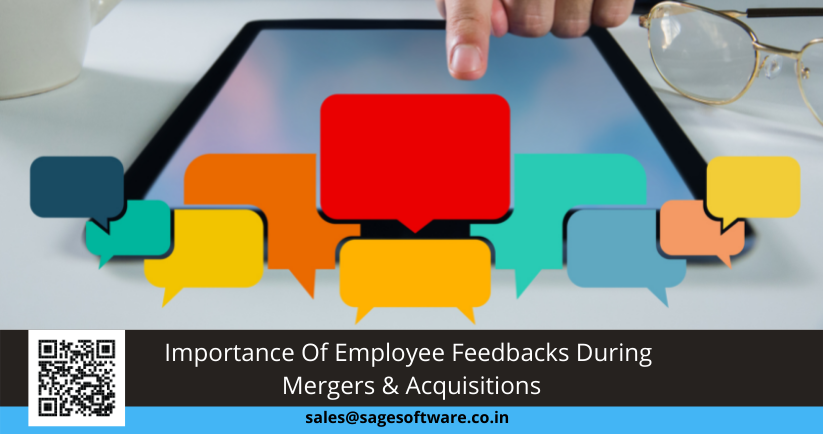In today’s fast-paced business ecosystem, mergers and acquisitions (M&A) have become the norm. Yes, M&A can take place at any time. Also, M&A tends to bring in a streak of questions and insecurities among employees of a company. Concluding an M&A is only half battle won, as the real work kicks in post that.
Any M&A will require employees of the company to change their way of doing work or business, which they might not like, especially if doesn’t align with their values or goals. Employees may rethink their loyalty towards the company, especially if they don’t see any benefits of the M&A. This can cause the company a high turnover as employees might quit the company altogether.
Thus, during this transition phase, it becomes extremely important for CEOs to pay close attention to employee feedback.
Here are few useful insights into what’s cooking in the heads of your employees during M&A and why CEOs should never ignore employee feedbacks during this critical phase.
1. New Benefits/Perks
As no two organizations are the same, perks and benefits would certainly undergo changes after the merger. Thus, employees would be keen to learn about their renewed pay packages. They will be eager to know about the new salary structure. They also would want to know about their vacation holidays, sick leaves, etc. the list is endless. Now the C-suite might have to tweak the benefits and pay packages after an M&A i.e., either deduction or addition to the packages. Here, a well-conducted survey would make it easier to determine the expectations of their employees before rolling out the new salary and benefits packages. Who knows your appraisal process might need an overhaul?
2. Shift in Work Life
Chances are quite high that your current workforce or the one that you will be acquired after the merger might fervently disagree with the entire decision pertaining to the M&A. On the other hand, if the M&A begins to churn out negativity in your people, it is important for the C-suite personnel to chip in. Again conducting surveys is a smart way here to know whether your people are contended with the M&A or not. Surveys allow CEOs to have useful anonymous communication with their employees. Since employees don’t have to put their names on the answers, you can get actionable and honest employee feedback. This would help CEOs to execute immediate steps for making things better. There is no point in making a merger if you are not able to solicit feedback from your people.
3. Job Security
The mere thought of downsizing or cost-cutting in the minds of employees is enough to trigger bouts of anxiety eventually leading to distractions at work. If employees are apprehensive when it comes to job security, it is difficult for an organization to hit its full potential. If the survey indicates that your workforce is apprehensive over job security, you ought to address the problem instantly and with diligence. Worst scenario, if you intend to cut down on jobs, make sure you are upfront and honest to your employees regarding the same.
4. New Start, New Processes
Merger and acquisition mean that your employees might have to bid farewell to those old tools and embrace new technology. This is because organizations after M&A undergo significant restructuring or reboot. Since your business would be going through the same phase, it is advisable to solicit employee feedback from your employees seeking their suggestions for enhancing the processes. This would not only improve your organizational efficiency but will also assist in employee engagement to a substantial level whilst making them valued and heard.
Takeaway
There’s no point in steering a merger and acquisition unless you involve your employees in the process and solicit their feedback. Make sure to proactively solicit suggestions and opinions of your employees to make the M&A process smooth and easy.
To learn more about the importance of employee feedback, read our HR-related blogs here.








